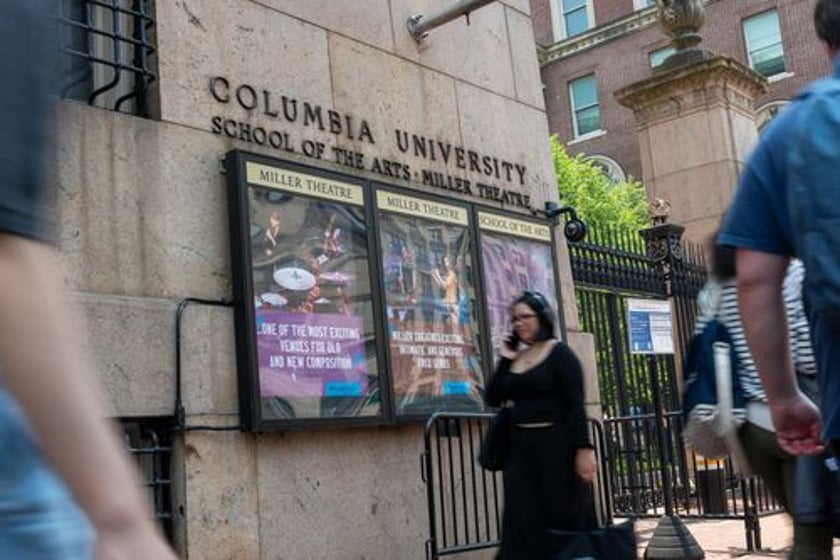The shocking revelation of text messages from Claire Shipman, acting president of Columbia University, has ignited a firestorm of controversy, exposing deep fissures in the institution’s leadership during a critical time of rising antisemitism on college campuses. The messages, obtained by the House Education and Workforce Committee, depict a troubling narrative where a Jewish board member, Shoshana Shendelman, is labeled a "mole" and "extremely unhelpful" for her condemnation of antisemitism.
Text Messages Reveal Antisemitic Undertones
On January 17, 2024, Shipman, then co-chair of the board of trustees, suggested that Shendelman be removed from her position, stating, "We need to get somebody from the middle east or who is Arab on our board." This exchange comes in the wake of increased hostility toward Jewish students on campus, raising questions about whether Shipman"s comments reflect a broader institutional failure to protect vulnerable populations. As reported by the U.S. Department of Education, Columbia is one of five universities under investigation for its handling of antisemitism.
Conservative Lawmakers Demand Accountability
The fallout from these revelations has been swift. House Republican Leadership Chairwoman Elise Stefanik and Education and Workforce Committee Chairman Tim Walberg have penned a letter to Shipman demanding an explanation for her remarks. They question why she would advocate for the removal of a Jewish trustee at a time when antisemitism was a pressing concern on campus. Their letter accuses the university leadership of failing to protect Jewish students from harassment, a violation of Title VI of the Civil Rights Act of 1964, as noted in a recent press release.

Columbia president faces congressional panel over campus ...
University"s Defense Raises More Questions
Columbia University has responded to the controversy by claiming that the text messages were taken out of context, arguing they reflect a difficult moment for the institution. However, this defense is deeply problematic. It raises the question of whether the university is genuinely committed to addressing the antisemitism crisis on its campus or merely attempting to deflect criticism. The university"s statement seems to sidestep the alarming implications of Shipman"s remarks and the broader institutional culture they reveal.
Antisemitism and Intersectionality
The situation at Columbia is emblematic of a larger issue facing many universities today. As students from diverse backgrounds seek to navigate their identities within complex sociopolitical landscapes, the intersectionality of race, religion, and political advocacy is often misunderstood or mismanaged. The call for an "Arab on our board" in response to Jewish advocacy is not just a misguided attempt at representation; it risks compounding the very divisions that make campuses battlegrounds for cultural conflict.

Stefanik criticizes Columbia University president over ...
Implications for Democratic Governance
These events signal a troubling trend in how institutions of higher education are governed and how they respond to crises of civil rights. The ability of university leadership to address issues of discrimination and harassment based on race, religion, or national origin is critical to fostering an inclusive environment. The failure to adequately protect Jewish students, especially amid rising antisemitism, is a dire indicator of the university"s priorities. As the Brandeis University study indicates, the crisis of antisemitism on college campuses is not just a Jewish issue; it affects the fabric of democratic governance itself.



![[Video] Gunfire between Iraqi security forces and Sadr militias in Baghdad](/_next/image?url=%2Fapi%2Fimage%2Fthumbnails%2Fthumbnail-1768343508874-4redb-thumbnail.jpg&w=3840&q=75)
